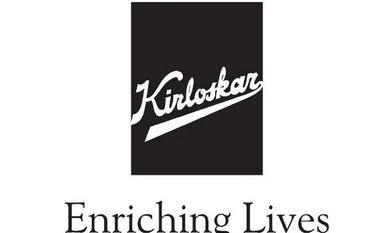Kirloskar Brothers to be debt-free company, focus on profitable growth
Leading pump makers Kirloskar Brothers Ltd (KBL) is close to be a debt-free company and will continue its growth journey into domestic and international markets, said a top company official.
)
Leading pump makers Kirloskar Brothers Ltd (KBL) is close to be a debt-free company and will continue its growth journey into domestic and international markets, said a top company official.
After being debt-free, the company will focus on cash flow and will not chase topline (revenue) numbers at the cost of profitability, said KBL Director Alok Kirloskar.
"As part of that strategy, we will be a debt-free company. And, if you look at the numbers at the end of this year in March, we are almost debt-free as a company," Alok Kirloskar told PTI.
On a standalone basis, KBL is close to being debt-free and the next objective is to enhance its ROCE (return on capital employed), over 25 per cent and ROE (return on equity) about 20 per cent, added.
"The next objective is, of course, enhancing the profitability and enhancing our growth after we are established to be debt-free because we are not comfortable with having large amounts of debt, which was the case in 2010," he added.
Also Read
When asked about the growth, Kirloskar said, "We will continue on the CAGR (compound annual growth rate), that is our objective. Even in the times of coronavirus, if you see our third-quarter numbers, we have still shown that we are doing better than last year, even though coronavirus."
In 2019-20, KBL, a flagship company of the USD 2.1-billion Kirloskar Group, had reported a revenue of Rs 2,097 crore.
However, he also added, "Growing the turnover is important but not at the cost of profitability and cash flow. Our first objective No. 1 is cash flow, No. 2 is profitability and No.3 is turnover."
The key sectors in which KBL operate are water and wastewater, irrigation, industrial, commercial building services, and oil & gas.
KBL gets half of its business directly from consumers under the business-to-consumer route, and the rest half from the institutional buyers from business-to-business (B2B) and business-to-government (B2G) channels, Alok added.
The company has made a big shift from a project company to be a product company. In 2010, around 75 per cent of its revenue was coming from projects and the rest 25 per cent from products.
"If you look at our mix as of last year, 97 per cent came from products and 3 per cent came from projects. So, you know we have made a big shift to focus on products in the last 10 years," Kirloskar added.
Over the international business, which contributes over one-third of the KBL's business, the company is now focusing more on becoming a services business rather than in the product business.
The company's fundamentals are strong and have implemented the artificial intelligence system, which has made the front-end of its business automated.
"We have invested in these bad times in 3D-printing. So, we operate the world's largest 3D printers. I would say that technology-wise, we have made big investments.
"And, we have a really strong international business. So, we are not only India's biggest pump manufacturing company but also the UK's biggest pump manufacturing company," he said.
Besides India, the Kirloskar group firm KBL has manufacturing facilities in the UK, USA, the Netherlands, South Africa and Thailand. While in Egypt, it has an assembly facility.
According to Kirloskar, 35-40 per cent of the business of the company comes from outside India.
"We are the UK's largest pump manufacturing company, so we have a manufacturing plant in the UK, the US in Atlanta, the Netherlands, South Africa and Thailand," said Kirloskar, who is also managing director of the UK-based SPP Pumps Ltd.
When asked as to whether KBL is looking to increase the contribution from the global markets, he said, "Objective of course, is to have a higher international business."
According to the Indian Pump Manufacturers' Association (IPMA), the market is about Rs 8,000-10,000 crore in which 65 per cent is with the organised players.
(Only the headline and picture of this report may have been reworked by the Business Standard staff; the rest of the content is auto-generated from a syndicated feed.)
More From This Section
Don't miss the most important news and views of the day. Get them on our Telegram channel
First Published: Mar 28 2021 | 2:10 PM IST


